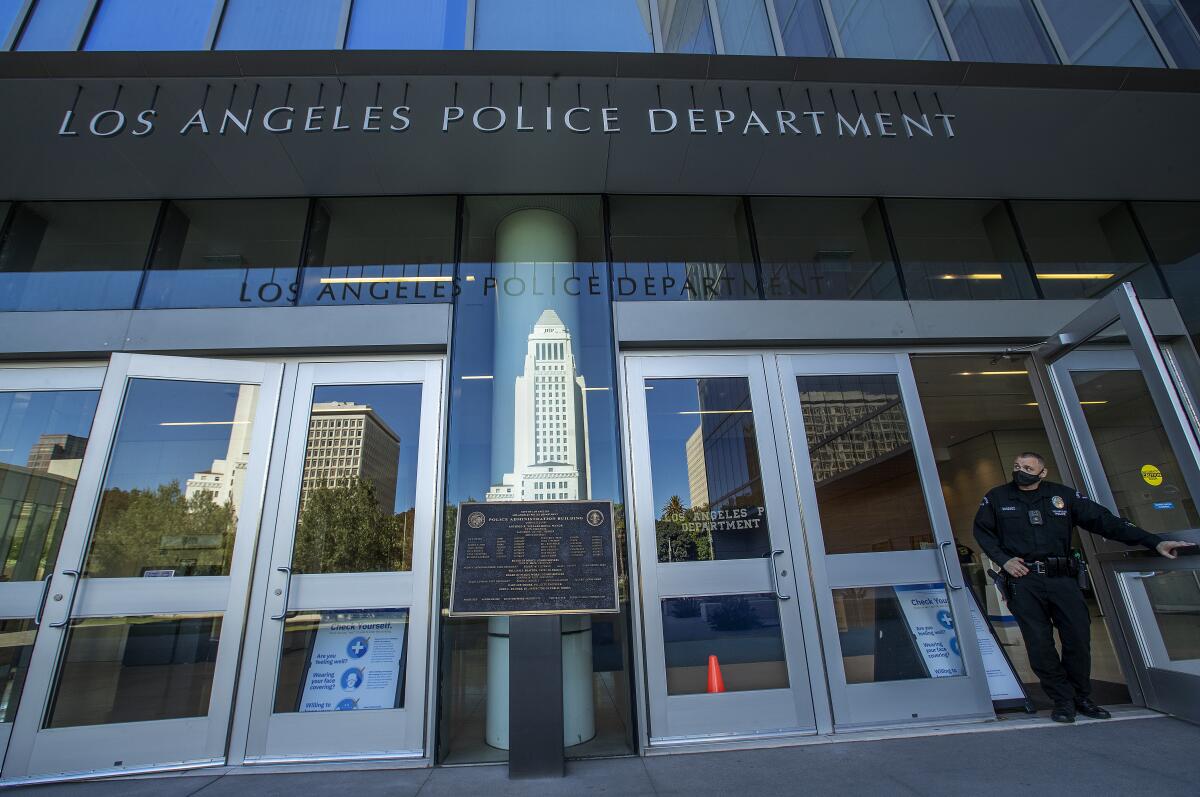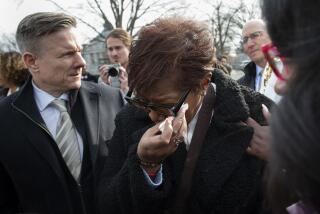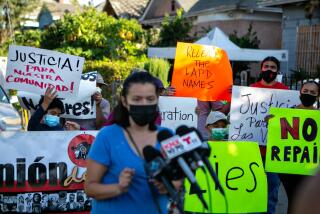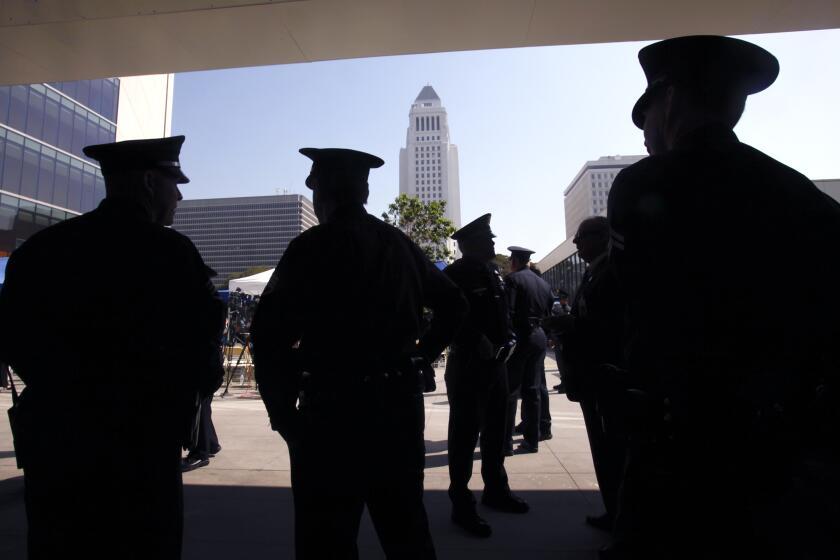L.A. approves $300,000 payout to protester shot in testicle by LAPD projectile

The Los Angeles City Council on Wednesday approved paying $300,000 to a protester who lost part of a testicle after being shot by a Los Angeles police projectile during protests over the murder of George Floyd in 2020.
The settlement, approved unanimously, is among the first to come out of a slew of lawsuits over the LAPD’s response to weeks of volatile demonstrations in May and June of that year, when thousands of people took to the streets to protest police abuses, including Floyd’s killing by Minneapolis police.
David Bond alleged in his federal lawsuit last year that the LAPD’s decision to shoot him with a projectile represented “excessive and unreasonable force” and a lack of training and oversight, and violated his civil rights. He said he had been protesting peacefully and posed no threat to officers when he was shot.
Bond, of Los Angeles, claimed “permanent disfigurement” and demanded $2 million from the city in damages.
According to an internal city document on the settlement, a copy of which was reviewed by The Times, the case went to mediation, with both sides agreeing to the $300,000 settlement in January.
The city’s lawyers determined the payout was “a better result than likely could be achieved” if the case went to a jury trial, given the facts of the case.
Bond had been part of a large protest near City Hall in downtown L.A. on May 29, 2020, when he alleged he was shot in the groin at close range with a projectile. Bond claimed he followed commands by police to back up, even though he’d never heard officers declare the gathering unlawful — which the city said they’d done — and had given officers no cause to treat him as a threat.
In his lawsuit, Bond said he “never threatened anyone, made no aggressive movements toward anyone, made no furtive gestures, and no physical movements that would reasonably suggest to the [police] that [he] was attempting, willing, or intending to inflict harm to anyone.”
The city’s lawyers wrote that Bond was seen on video using a tennis racket and a salad bowl “to shield himself and others from less lethal projectiles being fired at him and the crowd,” but that there was no evidence that he had participated with others in throwing objects at officers or that he had wielded the racket as a weapon or threatened officers with it.
“Mr. Bond is observed shouting and being argumentative toward officers, and refusing to follow the officers’ orders to leave the area, but his noncompliance did not justify the use of less lethal munitions being fired at him,” the city attorneys wrote.
City attorneys found no video of the shooting itself. They said it was unclear what struck Bond, but that “the nature of his injury and wound suggest that he was struck by possibly a 37 [millimeter] or 40 [millimeter] projectile fired at relatively close range.”
The attorneys wrote that Bond received no medical treatment from officers at the scene, and he eventually drove home before his fiancé took him to a hospital and he underwent surgery, where part of his left testicle was removed.
Dale Galipo, Bond’s attorney, said Wednesday that he and Bond were happy with the settlement.
“It was the right thing to do under the circumstances,” Galipo said. “Arguably the case could have been worth more money than that, but the client wanted to get it resolved at this point, and I was supportive of that.”
The city is facing a mountain of other lawsuits related to the LAPD’s actions during protests, including a class-action lawsuit from Black Lives Matter Los Angeles. Individual suits have also been filed by other protesters shot with projectiles — including others shot in the testicles and in the head.
Bond’s settlement hinged on the specific circumstances of his shooting, Galipo said, but nonetheless shows the city’s financial vulnerability to claims of excessive force over the LAPD’s use of projectiles during the protests. Those police actions have been widely criticized and resulted in department reforms and new training for officers on the use of the weapons.
The Black Lives Matter case also resulted in an injunction restricting the department’s use of hard-foam projectiles in crowd control settings, and the department has halted the use of beanbag projectiles on protesters.
In settlement documents in Bond’s case, officials wrote that a 40-millimeter projectile was the “likely root cause” of Bond’s lawsuit, and listed additional training for officers on the weapon system as the appropriate “corrective action” for the LAPD.
More to Read
Sign up for Essential California
The most important California stories and recommendations in your inbox every morning.
You may occasionally receive promotional content from the Los Angeles Times.












